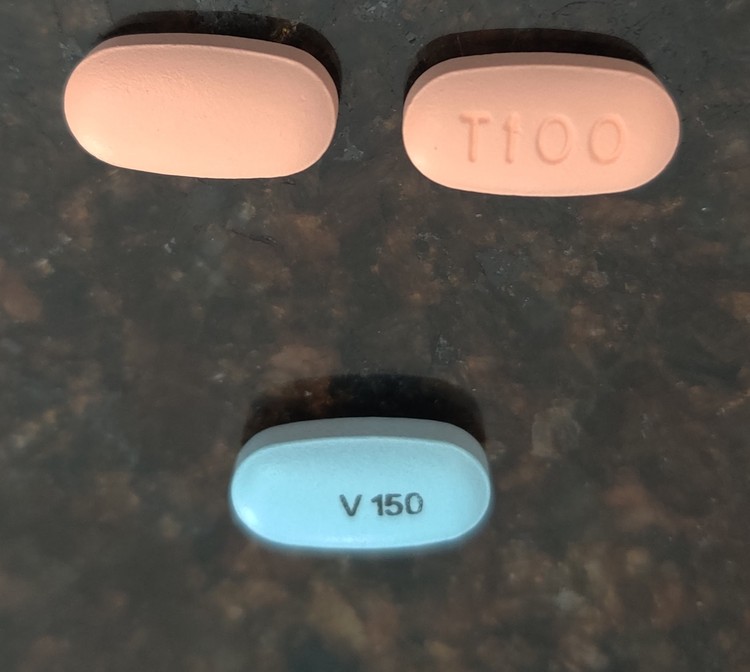Activists furious after Competition Commission drops probe into pharma company
Life-saving drugs still not available to many cystic fibrosis patients
Pills use to treat cystic fibrosis. Photo: Jillian Curran via Wikimedia (CC BY-SA 4.0)
- A majority of cystic fibrosis patients still have no access to life-saving drugs in spite of the Competition Commission deal with Vertex Pharmaceuticals.
- The Commission has dropped its probe into Vertex’s “exclusionary practices and excessive pricing” based on formal undertakings by the pharmaceutical giant.
- But health justice campaigners say there has been no transparency over the deal - and for 63% of Cystic Fibrosis patients nothing has changed.
- The campaigners are seeking an urgent meeting with the Commission.
Health campaigners have slammed a decision by the Competition Commission to end its investigation into Vertex Pharmaceuticals’ monopoly on life-saving medicines for people living with cystic fibrosis.
“We are concerned that the Commission has fallen victim to Vertex’s well-known and aggressive PR and legal strategy, designed to safeguard its global patent monopoly at all costs,” said a statement by nine organisations: the South African Cystic Fibrosis Association, Right to Breathe Campaign, Health Justice Initiative, Vertex Save Us, Just Treatment, SECTION27, Treatment Action Campaign, People’s Health Movement and Cancer Alliance.
The Commission, in a statement released on 11 December, said it had initiated the probe against Vertex based on allegations that it was engaging in exclusionary practices and excessive pricing in the provision of Kalydeco, Orkambi, Symdeko and Trikafta – medicines used to treat cystic fibrosis.
“Following the Commission’s investigation and various engagements with Vertex, Vertex gave formal undertakings to the Commission to continue to make Trikafta available in South Africa through Section 21 of the Medicines and Related Substances Act, which enables the sale of unregistered drugs within South Africa,” it said.
This undertaking, it said, had resulted in a “non referral” of all allegations against the company.
It said that Trikafta had broadly replaced the use of the other medicines. Previously patients with cystic fibrosis had to import it. To reduce the financial burden, Vertex had from April this year begun supplying it through a local distributor.
“This makes Trikafta available locally at prices that enable cystic fibrosis patients to access treatment. Separately, financial assistance is available through a patient assistance programme managed by a non-government organisation, and eligible cystic fibrosis patients who belong to certain medical schemes get Trikafta at no cost as they also receive some financial assistance from their medical aid schemes.”
Unavailable
But health campaigners are not happy They say for the vast majority of cystic fibrosis patients (about 63%), nothing has changed.
“The real victims of this decision by the Commission are the most vulnerable South African children and young people who rely on the public health sector, who are not rich, and who have little or no medical scheme cover,” they said.
“These patients do not currently, and will not get access to this medication because of Vertex’s patents and secretive, limited access and excessive pricing strategies.”
Alarmingly, they said, the medicine remains unregistered in South Africa, forcing patients to either import it or rely on the “administratively burdensome” section 21 approval process.
“This is not a sustainable way to address a chronic treatment need,” they said.
The so-called patient assistance programme did not promote equity, was far from transparent, nor sustainable and the price was undisclosed.
They said they were seeking an urgent meeting with the Commission
“We cannot allow the manipulation of South Africa’s laws, regulations and health system to go unchecked in the name of one drug company’s self-interested monopoly greed.”
Vertex replies
Approached for comment, Vetex said more than 180 cystic fibrosis patients were accessing the medicine through the Section 21 pathway “which represents about 50% of the eligible population”.
“We took this pathway because we strongly believe that this is the fastest and most efficient route to sustainable access in South Africa, given that it does not require a regulatory filing, which can take many years.”
The company said even with regulatory approval, most novel, high value medicines were not included on the Prescribed Minimum Benefits list.
“There is therefore no obligation for funders [private and public health insurances] to reimburse the costs of these medicines, which effectively make them inaccessible to most patients. In our opinion, a license application would not speed up the process for broad access to our cystic fibrosis medicines.”
It said its triple combination therapy was currently funded by eleven healthcare providers, who cover most cystic fibrosis patients in the private sector in the country.
“We are continuing discussions with other health insurers and are in parallel exploring potential sustainable access opportunities in the public sector, which has been historically challenging for rare disease medicines in South Africa.”
It said “exact pricing” and details of its partnerships remained confidential.
Support independent journalism
Donate using Payfast

Don't miss out on the latest news
We respect your privacy, and promise we won't spam you.
Next: District Six Museum marks 30 years of memories
Previous: Leaked report exposes abuse of lottery money paid to minstrel group
© 2024 GroundUp. This article is licensed under a Creative Commons Attribution-NoDerivatives 4.0 International License.
You may republish this article, so long as you credit the authors and GroundUp, and do not change the text. Please include a link back to the original article.
We put an invisible pixel in the article so that we can count traffic to republishers. All analytics tools are solely on our servers. We do not give our logs to any third party. Logs are deleted after two weeks. We do not use any IP address identifying information except to count regional traffic. We are solely interested in counting hits, not tracking users. If you republish, please do not delete the invisible pixel.

